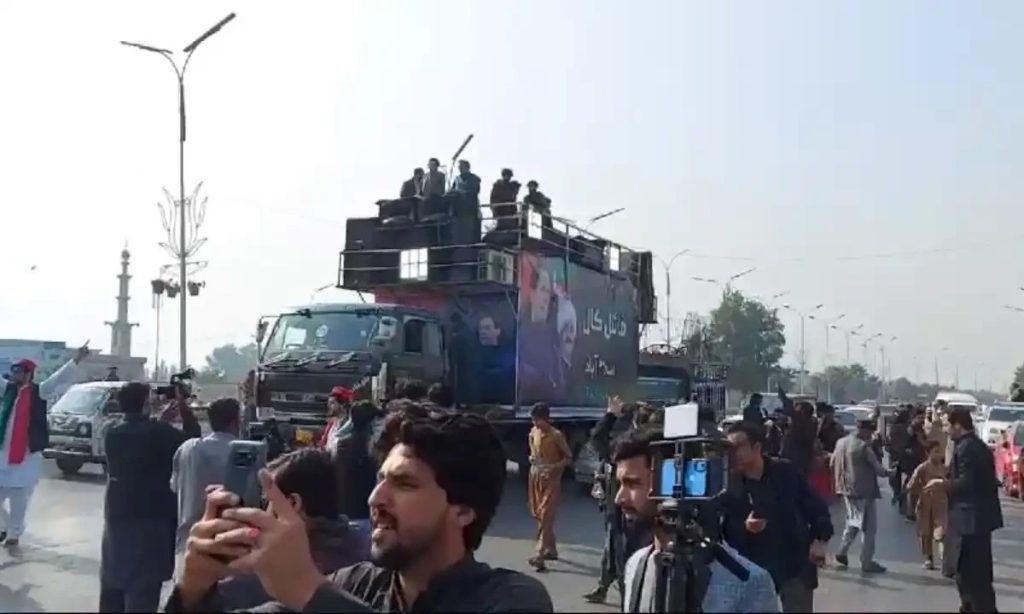The recent PTI protest has once again revealed the harsh reality of how Pakhtoons are treated by those they trust. Leaders like CM Ali Amin Gandapur and Bushra Bibi fled the scene, leaving their supporters to face deadly consequences. Reports of over 90 deaths and more than a thousand injuries highlight the devastating aftermath of this protest. This is not just a political failure but a grave betrayal of the community’s trust.
Time and again, Pakhtoons have been drawn into protests under the illusion of achieving justice or addressing grievances. Yet, at every critical moment, the very leaders who instigated the unrest choose self-preservation over loyalty. These leaders, safe in their comfort zones, abandon the workers to endure the violence and face the consequences alone. The tragic outcome of this recent protest is a stark reminder of how cheap Pakhtoon lives have become in the eyes of these so-called leaders.
A Trail of Tragedy and Broken Promises
The pattern of failed protests led by Ali Amin Gandapur cannot be ignored. Each rally begins with fiery speeches and promises of change, yet ends in chaos, death, and injuries. The leadership’s failure to strategize or ensure the safety of their supporters is evident in every instance. From previous failed attempts to this recent disaster, the narrative remains the same: sacrifice the lives of ordinary people while leaders escape unscathed.
Ali Amin Gandapur, despite his position as a chief minister, has a long history of organizing poorly planned protests. Instead of leading responsibly, he has repeatedly abandoned his workers in critical moments. His lack of accountability has left families grieving, their loved ones lost to causes that yield no tangible outcomes. This negligence not only highlights his ineffectiveness as a leader but also his disregard for the value of human life.
Sacrifices That Only Benefit the Powerful
While Pakhtoons have risked their lives for the PTI leadership, the disparity between the lives of ordinary workers and the party elite is glaring. Leaders like Ali Amin Gandapur and Bushra Bibi ensure their own safety, along with the safety of their families, while pushing vulnerable supporters to the frontlines. A simple yet critical question arises: Where were their children during these protests? Why did they not stand alongside the workers?
The answer is clear. These leaders are fully aware of the risks involved and intentionally shield themselves and their families from harm. This hypocrisy should serve as a wake-up call for all those who continue to believe in their empty promises.
Manipulating Pakhtoon Emotions
The emotional and cultural pride of Pakhtoons has been repeatedly exploited by PTI leadership. Rhetoric that paints the state as an enemy of Pakhtoons has been weaponized to create divisions and mistrust. This dangerous narrative serves no one but the political elite, who thrive on chaos and discord.
Non-Pakhtoon PTI leaders have also played a significant role in sowing seeds of division. They have manipulated the community into believing that their struggles are unique and that the state has abandoned them. In reality, these tactics only serve to distract from the leadership’s own failures and deepen the divide within Pakistan.
Families Must Protect Their Own
A crucial question arises for Pakhtoon families: Why are young men being allowed to sacrifice their lives for leaders who clearly do not care? The role of parents in safeguarding their children cannot be overstated. It is their responsibility to see through the manipulation and protect their loved ones from becoming pawns in political games.
Leaders like Bushra Bibi and Ali Amin Gandapur have never allowed their own children to face such risks. This stark disparity in treatment highlights the need for families to reassess their trust in these individuals. The lives of Pakhtoon youth are far too valuable to be wasted in futile protests that only serve the egos of politicians.
The Power of Unity Over Division
The recent protest should serve as a lesson for Pakhtoons to reject divisive politics. Instead of falling prey to the agendas of self-serving leaders, the community must focus on unity and constructive progress. Accepting differences and fostering mutual respect among all Pakistanis is the only way forward.
Pakhtoons deserve better leadership—leaders who genuinely care for their well-being and strive for their prosperity. The exploitation of their emotions and sacrifices must end. It is time for Pakhtoons to realize their true potential and channel their strength toward building a united, strong Pakistan.
The future of the Pakhtoon community lies in awareness, education, and rejecting political agendas that use their bravery and loyalty as tools for chaos. Let this tragedy serve as a turning point, inspiring change and ensuring that no more lives are lost in the name of politics.


